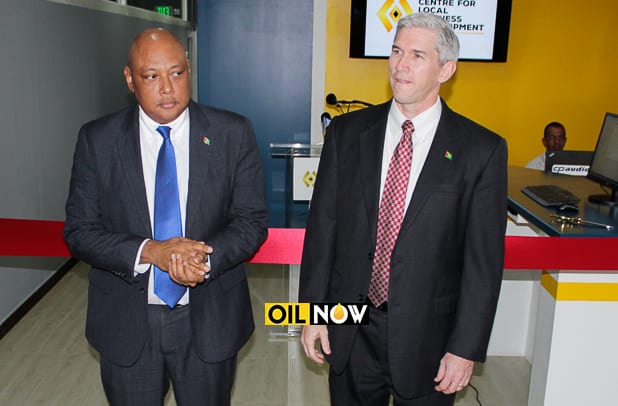The Guyana government and US super-major ExxonMobil will need to sit down and chart a way forward regarding the disclosure of information related to agreements for petroleum exploration and production in the South American country.
Guyana’s Minister of Natural Resources, Raphael Trotman, says since the two parties are essentially partners in the development of offshore petroleum resources, it is only fitting that any decision made about disclosures is based on mutual understanding and consent.
“I believe that we need to sit with each other and decide what is in our best interest because we are partners…joint development partners for the Stabroek Block; 50/50 partners so to speak, and so whatever we do must be to our mutual benefit, not just to the nation of Guyana, but also to the investors,” Mr. Trotman told OilNOW in a recent interview.
The Guyana government has come in for criticism for its decision not to disclose the details of the Production Sharing Agreement signed with ExxonMobil for petroleum production beginning in 2020. While an agreement signed in 1999 between Guyana and ExxonMobil’s affiliate, Esso Exploration and Production Guyana Ltd. which outlines terms and conditions for petroleum exploration and production, is accessible online (posted by a local media outlet), details of the current version of this agreement remains unknown. Since at least one aspect of that agreement has changed regarding royalty, civil society and members of the public are adamant that all the details of the current document should be made public.
Mr. Trotman and other government officials have repeatedly pointed to a confidentiality clause in the Petroleum Act to support their decision not to publicly disclose details of the contract. That clause says, in part; “…no information furnished, or information in a report submitted, pursuant to this Act by a licensee shall be disclosed to any person who is not a Minister, a public officer or an employee of the Guyana Geology and Mines Commission, except with the consent of the licensee.”
Guyanese Attorney-at-Law and political analyst Christopher Ram has told OilNOW based on his interpretation, this clause pertains to information in a report, and not, in the case of an agreement between Guyana and ExxonMobil, the contract itself. “I reject completely any interpretation of the Petroleum Exploration Act that seeks to prevent the full disclosure of petroleum contracts and agreements,” he said.
In a comment to OilNOW on August 24, ExxonMobil’s Senior Director, Public and Government Affairs, Kimberly Brasington, said in many of the countries the company operates, governments choose to publish their petroleum agreements – or parts of the agreements. “With respect to publishing entire contracts, it is ExxonMobil’s preference not to disclose contracts and private agreements in order to protect proprietary or commercially sensitive information. However, if the law in a particular country requires it, we follow the law,” she stated.
The company said it remains open to sitting down with the Guyana government to address the matter of disclosures; a position which Mr. Trotman says his government welcomes.



